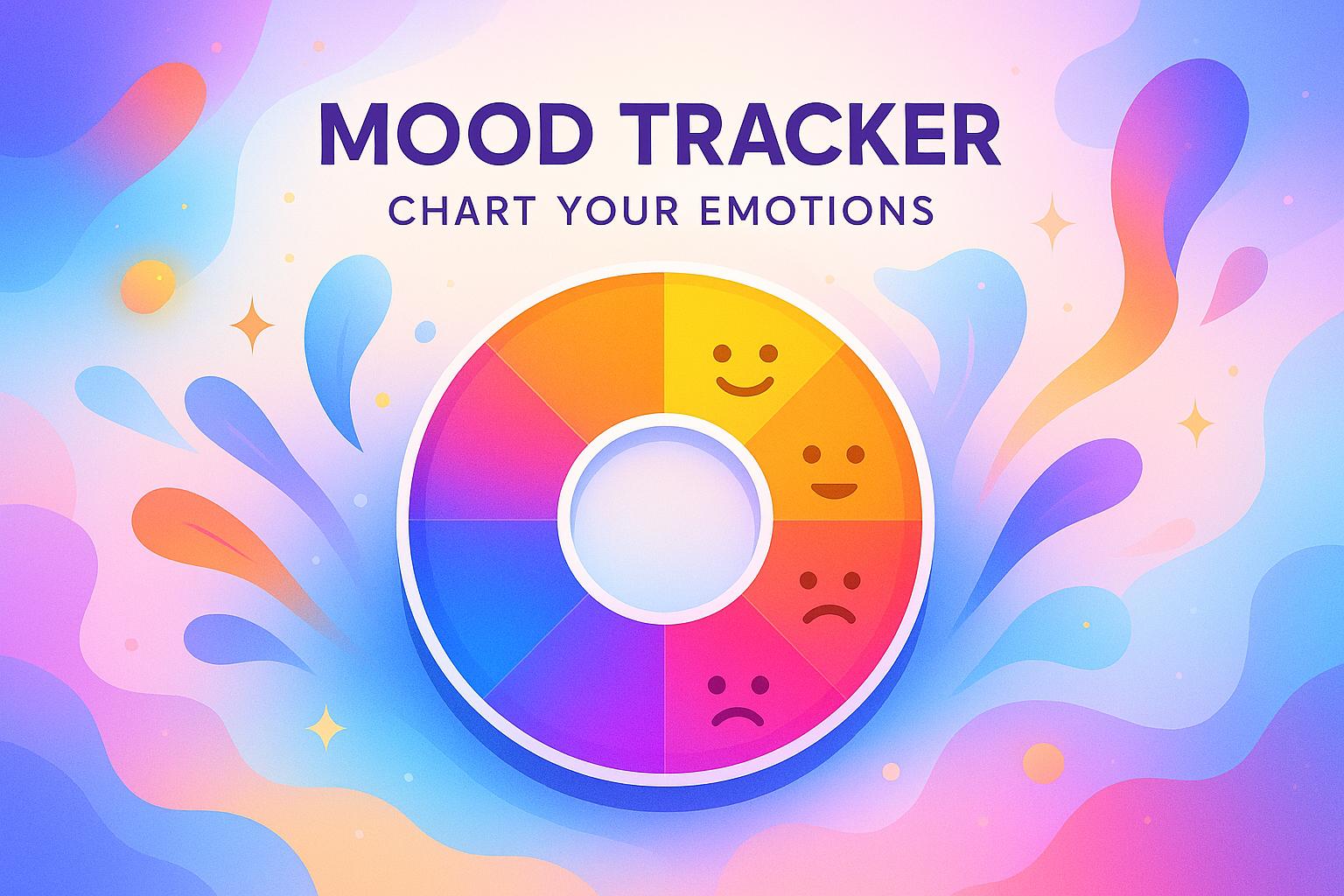Your internal clock, or circadian rhythm, influences more than just sleep - it plays a key role in mental health, especially for women. Hormonal shifts, sleep disruptions, and daily habits can impact mood, anxiety, and cognitive function. Here’s a quick rundown of how circadian rhythms affect women’s mental well-being:
- Hormonal fluctuations: Misaligned rhythms can amplify mood swings and anxiety during menstrual cycles, pregnancy, or menopause.
- Sleep and emotions: Poor sleep patterns worsen mental health, creating a cycle of anxiety, depression, and fatigue.
- Morning vs. night types: Evening-oriented women are more prone to mood disorders than morning types.
- Cognitive effects: Disruptions impact memory, focus, and decision-making, making daily life more challenging.
- Resetting rhythms: Strategies like light exposure, consistent sleep schedules, and stress management can help restore balance.
How Circadian Rhythm Affects Women's Health, Hormones & Well-being | Dr. Stacy Sims
1. Hormonal Changes and Mood Control
Women's hormones naturally shift throughout the month, influencing mood, energy levels, and mental clarity in noticeable ways.
During the first half of the menstrual cycle, rising estrogen levels often contribute to better mood and sharper cognitive function. But when sleep patterns are disrupted - whether by irregular schedules or shift work - this hormonal balance can falter. The result? Mood swings, irritability, and even heightened anxiety. Such disruptions can pave the way for more serious hormonal imbalances tied to specific health conditions.
The connection becomes even more pronounced during the luteal phase, the two weeks leading up to menstruation. Here, progesterone levels peak and then drop sharply. This hormonal rollercoaster, especially when combined with disrupted sleep, can put significant strain on mental health.
Conditions like PMDD (premenstrual dysphoric disorder) and postpartum depression highlight how abrupt hormonal shifts, coupled with poor sleep, can intensify symptoms of depression, anxiety, and mood instability.
Timing plays a crucial role in hormone production. Cortisol, often called the stress hormone, naturally surges in the early morning to help us wake up and feel alert. But when circadian rhythms are off-kilter, cortisol levels can become erratic - leading to daytime fatigue and difficulty falling asleep at night.
Melatonin, the hormone that signals the body to prepare for sleep, typically rises in the evening. However, exposure to bright lights or irregular routines can suppress melatonin production, throwing off this delicate balance. When melatonin patterns are disrupted, it can lead to hormonal imbalances that further impact mood.
These intricate connections help explain why some women experience heightened mental health challenges during certain parts of their cycle or why those with irregular schedules, like shift workers or frequent travelers, may find it harder to regulate their mood.
2. Sleep Problems and Mental Health Issues
Sleep disruption is a major factor affecting women's mental health, closely tied to hormonal changes. When circadian rhythms fall out of sync, sleep is often the first to suffer, setting off a chain reaction that can take a serious toll on emotional well-being.
Irregular sleep patterns can intensify anxiety and depression, creating a vicious cycle where poor sleep worsens mental health, and mental health struggles make restful sleep harder to achieve. This dynamic plays out differently across various stages of life.
For instance, new mothers often face months of interrupted sleep due to the demands of caring for a newborn. This chronic sleep deprivation can contribute to or worsen postpartum depression and anxiety. Without adequate restorative sleep, the brain struggles to regulate emotions effectively, leaving new mothers feeling overwhelmed.
Women working night shifts or rotating schedules also face unique challenges. Misaligned sleep cycles force their bodies to adapt to sleeping during the day, often resulting in fragmented and poor-quality sleep. This disruption leaves them more vulnerable to mood disorders like depression and anxiety.
Sleep fragmentation - waking up multiple times during the night - is particularly harmful. Even if the total hours of sleep seem sufficient, these interruptions prevent the brain from entering deep, restorative phases crucial for emotional balance and stress management. This issue is especially common during perimenopause and menopause, when hormonal changes further disrupt sleep patterns.
Temperature regulation during sleep is another critical factor. Hot flashes and night sweats can repeatedly wake women, making it harder to fall back asleep. These interruptions interfere with the body's natural temperature drop, a key signal for sleepiness, leading to mood instability and heightened anxiety.
Adding to the problem, inconsistent sleep schedules - like going to bed and waking up at different times, especially on weekends - can confuse the body's internal clock. Researchers call this "social jet lag", and it often results in grogginess, irritability, and trouble focusing during the day.
Practicing good sleep hygiene can help stabilize circadian rhythms and support mental health. Simple changes, like keeping the bedroom cool (around 65–68°F), avoiding screens an hour before bed, and sticking to a consistent sleep schedule, can significantly improve sleep quality and mood.
Anxiety often complicates the issue further by fueling racing thoughts and physical tension that make it hard to wind down at night. This creates a frustrating loop where anxiety disrupts sleep, and poor sleep amplifies anxiety the next day.
Recognizing the link between sleep and mental health can empower women to address both issues together. Taking steps to improve sleep can serve as a foundation for managing mental health challenges more effectively - leading to better outcomes overall.
3. Morning vs Evening Types and Mood Disorders
Your natural daily rhythm - whether you're a morning person or a night owl - plays a significant role in mood regulation. This preference, known as your chronotype, can influence your vulnerability to mood disorders. Studies show that women who lean toward evening activity are more likely to experience depression and anxiety compared to those who prefer mornings [1][2][3].
Evening types often report stronger negative emotions, such as anger, confusion, fatigue, and tension, which can take a toll on overall well-being [3]. On the other hand, women with a morning chronotype tend to experience fewer depressive symptoms and report a higher quality of life [2][3]. This suggests that being naturally inclined toward earlier activity may provide some protection against mood disorders.
The reasons behind these differences are rooted in biology. Evening chronotypes are more sensitive to negative emotional cues and show weaker connectivity between the dorsal anterior cingulate cortex and the amygdala - two brain areas critical for emotional regulation [1]. This makes them more prone to mood disorders. Additionally, evidence indicates that evening types may respond less effectively to SSRI medications, which could mean that standard treatments might need to be tailored for individuals with this preference [1]. Notably, the connection between being an evening type and depression is particularly pronounced in women [1].
Recognizing your chronotype can be a powerful tool for supporting your mental health. Whether you thrive in the early hours or come alive in the evening, understanding how your internal clock aligns with your mood can help you prioritize habits like consistent sleep schedules, stress management, and seeking professional guidance when necessary. For women seeking personalized care, consulting experts like those at Moxie Psych and Wellness (https://moxiepw.com) can provide valuable support. With this foundation, we can now examine how disruptions in circadian rhythms impact daily cognitive performance.
sbb-itb-3d00657
4. Effects on Brain Function and Daily Tasks
Circadian disruptions don’t just mess with your sleep - they also take a toll on how your brain works, affecting memory, focus, and decision-making. For women, these cognitive challenges often pile onto the already demanding responsibilities of managing homes, careers, and families, making everyday life feel even more overwhelming. The ripple effects extend far beyond just feeling tired or moody.
When your internal clock is out of sync, memory formation becomes one of the first casualties. Circadian rhythm disruptions interfere with memory consolidation, which means you’re more likely to forget important details or miss appointments. It's like trying to save files on a computer with a glitchy hard drive - it just doesn’t stick.
Focus and concentration also take a hit. A misaligned circadian rhythm can make it harder to stay on task, turning simple routines into frustrating challenges. This is because the prefrontal cortex, the part of your brain responsible for planning and decision-making, depends on a well-timed internal clock to function at its best.
Even decision-making and processing speed aren’t spared. Your brain’s ability to weigh options and make sound choices follows a natural rhythm throughout the day. When that rhythm is disrupted, you might find yourself making impulsive decisions - like buying something you don’t need - or feeling stuck when faced with choices that would typically be straightforward. Tasks requiring quick thinking or fast responses suddenly feel like wading through mental quicksand, demanding more energy for the same outcomes.
These cognitive struggles can have a noticeable impact at work. Many women dealing with circadian disruptions report feeling less productive, making more mistakes, and falling short of their usual performance. This often leads to a frustrating cycle of stress and self-doubt, which only worsens sleep and further throws off circadian rhythms.
What’s important to recognize here is that these cognitive challenges aren’t personal shortcomings - they’re symptoms of a disrupted internal clock. By addressing the root cause with strategies like sticking to regular sleep schedules, managing light exposure, and seeking professional guidance, it’s possible to regain mental clarity and improve performance in all areas of life.
5. Treatment and Management Options
Disruptions to your circadian rhythm don’t have to be permanent. There are proven methods to help reset your natural sleep-wake cycle, which can also positively impact your mental health. The key is finding a combination of strategies that suit your lifestyle. Let’s explore some practical approaches to realign your internal clock and enhance your well-being.
Light therapy is a widely used method to address circadian rhythm disorders. This involves exposing yourself to bright light at specific times of the day to help reset your internal clock. For example, using a 10,000-lux light box for 20–30 minutes shortly after waking can be especially helpful during the darker winter months or for those working irregular shifts that disrupt natural rhythms.
Consistent sleep scheduling is another essential step. Going to bed and waking up at the same time every day - including weekends - helps stabilize your internal clock. While it might feel restrictive at first, this consistency is what your brain needs to maintain balance. Creating a relaxing bedtime routine 1–2 hours before sleep can also signal to your body that it’s time to wind down. This could include dimming lights, avoiding screens, or engaging in calming activities like reading or light stretching. A cool, dark, and quiet environment can further enhance your sleep quality.
Managing stress is equally important, as chronic stress can wreak havoc on your circadian rhythm. Techniques like deep breathing, meditation, or regular physical activity can help regulate stress hormones and improve sleep patterns. Even a short mindfulness exercise before bed can provide a sense of calm and prepare your mind for rest.
Sometimes, self-help strategies aren’t enough, and professional care becomes necessary. For many women, addressing circadian rhythm disruptions requires personalized support that considers hormonal shifts, life circumstances, and mental health needs. This is where professional intervention can be incredibly valuable. At Moxie Psych and Wellness, for instance, their mental health services are specifically designed to address the unique challenges women face, including the intricate connection between circadian rhythms and mental health.
Their services include both in-person and virtual psychiatric evaluations, making it easier to access care regardless of your location or schedule. Their approach to medication management also takes into account how treatments may impact sleep and circadian rhythms, ensuring that mental health care supports your natural cycles rather than disrupting them. For women managing conditions like depression, anxiety, or ADHD alongside circadian rhythm issues, this integrated care approach can be particularly effective.
Environmental adjustments can also make a difference. Using blackout curtains or an eye mask, avoiding caffeine after 2:00 PM, and wearing blue light-blocking glasses in the evening are simple yet impactful changes. These steps can help maintain your body’s natural melatonin production, especially if you need to use electronic devices before bedtime.
If self-guided efforts don’t yield results, seeking professional guidance is essential. A mental health provider who understands the relationship between circadian rhythms and women’s mental health can help craft a comprehensive treatment plan. This might involve therapy, medication adjustments, or specialized treatments that address both sleep disturbances and underlying mental health conditions.
Improving your circadian rhythm takes time, but progress is usually noticeable within weeks. Many women experience better sleep within 1–2 weeks and mood improvements in 4–6 weeks. Restoring your natural rhythm not only enhances your mental health but also supports your overall physical well-being.
Conclusion
The connection between your circadian rhythm and mental health highlights the importance of syncing your daily habits with your internal clock. Your circadian rhythm isn’t just about sleep - it’s a core biological system that influences many aspects of mental well-being, especially for women.
By identifying your chronotype and recognizing how disruptions to your circadian rhythm impact cognitive function, you can better understand that these challenges are not personal failings. Instead, they’re signals from your body that your internal clock may need some realignment - signals that can often be addressed with effective strategies.
Fortunately, circadian rhythm disruptions can be managed. Approaches like light therapy, maintaining a consistent sleep schedule, managing stress, and creating a supportive environment can help. For women dealing with the combined challenges of circadian rhythm issues and mental health concerns, professional support can play a crucial role. Moxie Psych and Wellness offers both in-person and virtual psychiatric evaluations, focusing on how your natural rhythms influence mental health. Their tailored medication management and integrated care approach are particularly helpful for those navigating conditions like depression, anxiety, or ADHD alongside circadian rhythm challenges. This personalized care model emphasizes the deep connection between mental health and sleep patterns, making it a valuable resource.
Restoring your circadian rhythm doesn’t happen overnight - it’s a gradual process. But with consistent effort and the right support, improvements in sleep, emotional balance, and mental clarity are within reach, leading to a better overall quality of life.
Taking steps to nurture your circadian rhythm not only supports emotional well-being but also lays a strong foundation for lasting mental health at every stage of life.
FAQs
How can women tell if their mental health challenges are related to circadian rhythm disruptions?
Women might find their mental health taking a hit when their circadian rhythm is thrown off - especially if they struggle with sleep-related issues like difficulty falling asleep, waking up too early, or dealing with irregular sleep patterns. These sleep disruptions can have a direct effect on mood, often leading to feelings of sadness, irritability, anxiety, or even depression, which may intensify as sleep habits change.
On top of that, disruptions in circadian rhythms can interfere with hormonal regulation, an essential factor in maintaining mental health. If these imbalances persist or start to interfere with everyday life, it could indicate that circadian rhythm issues are playing a role in mental health struggles. Understanding this connection can be a helpful step in discussing symptoms with a healthcare provider or mental health professional.
How can women reset their circadian rhythms to support better mental health?
Resetting your circadian rhythm can greatly influence your mental well-being. The first step? Stick to a consistent sleep schedule - go to bed and wake up at the same time every day, including weekends. This consistency helps regulate your body’s internal clock.
Another important factor is morning light exposure. Spending time outdoors or sitting near a bright window shortly after waking can signal your body that it’s time to start the day. On the flip side, avoid screens and caffeine in the evening, as they can interfere with your ability to wind down naturally.
For additional support, you might consider light therapy in the morning, which can help reset your internal clock. Regular physical activity also plays a role in promoting better sleep patterns. If naps are part of your routine, keep them short to avoid disrupting nighttime sleep. Finally, melatonin supplements - when used appropriately - can assist in realigning your sleep schedule.
These small adjustments can lead to noticeable improvements in your sleep quality and mental health over time.
Why are women who stay up late more likely to experience mood disorders, and how can they reduce their risk?
Women who naturally prefer staying up late, often referred to as having an evening chronotype, may be at a higher risk of experiencing mood disorders. This happens because their internal sleep-wake cycles often clash with typical societal schedules, leading to disrupted sleep patterns. Over time, this misalignment can interfere with hormone regulation and increase the likelihood of developing depression or anxiety.
To help counteract these challenges, sticking to a regular sleep schedule - even on weekends - can make a big difference. Getting plenty of bright light exposure in the morning is another effective way to reset your internal clock and promote better sleep. Additionally, practices like cognitive-behavioral therapy for insomnia (CBT-I) and mindfulness techniques can support a healthier circadian rhythm while enhancing mental well-being. For those needing extra guidance, reaching out to a mental health professional can provide personalized strategies and support.



